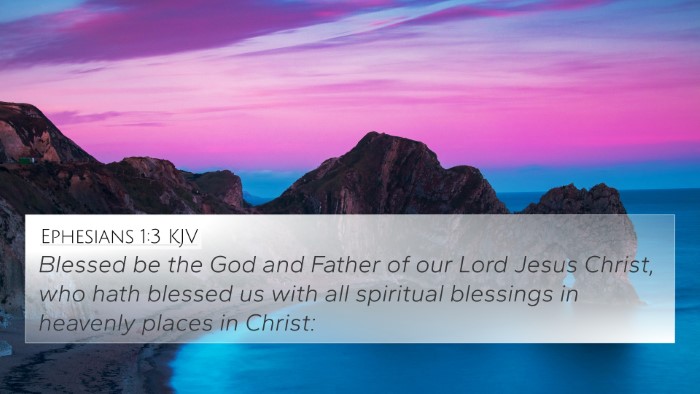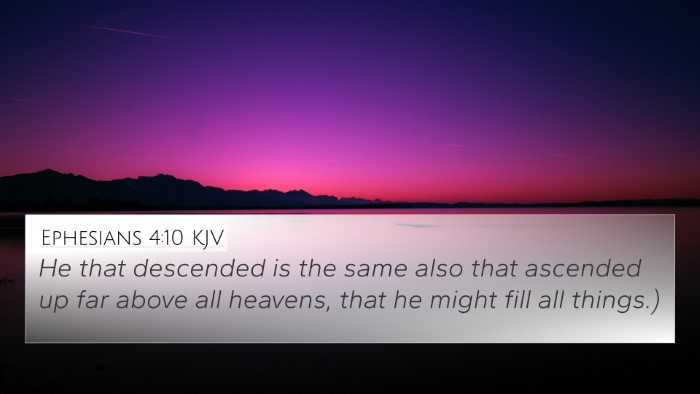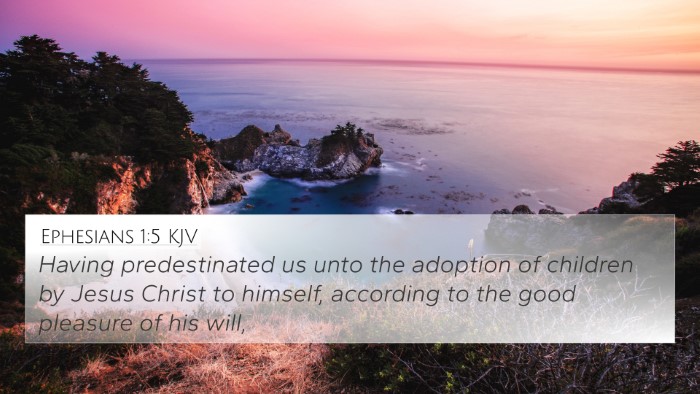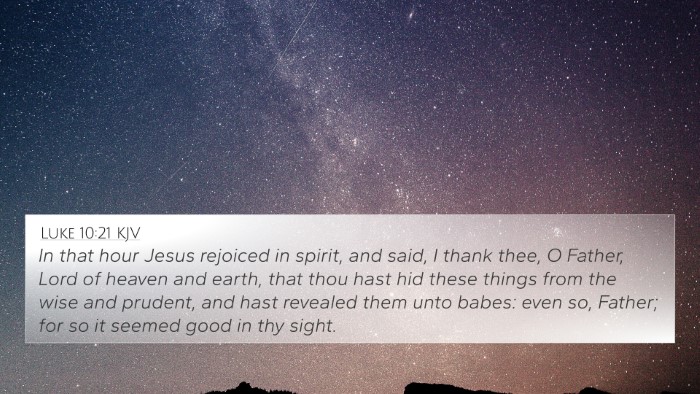Understanding Colossians 1:19
Colossians 1:19 states, "For it pleased the Father that in Him all the fullness should dwell." This verse embodies a significant theological concept regarding the nature of Christ and His relationship with the Father. Below is a combined interpretation of this verse, drawing insights from Matthew Henry, Albert Barnes, and Adam Clarke.
Verse Summary and Meaning
Colossians 1:19 emphasizes the completeness of Christ in His divine essence and authority. Each commentator highlights vital elements:
-
Matthew Henry: He emphasizes that the fullness refers to both divine attributes and the fullness of grace offered to believers through Christ. The verse points to the divine decision that Christ is not merely a part of God's plan but the core of it.
-
Albert Barnes: Barnes interprets the "fullness" as encompassing all of God’s character and attributes. He stresses that the verse affirms Christ's deity, which is crucial for understanding His role in salvation and redemption.
-
Adam Clarke: Clarke approaches this verse by highlighting the incarnation of Christ, emphasizing how He embodies the complete nature of God. He notes that this fullness is not just doctrinal but transformational for believers, as it invites them to partake in this divine fullness.
Theological Implications
This verse holds a central place in Christology, affirming the belief that Christ is fully God and fully man. The theological implications of "fullness" suggest that all divine attributes can be found in Christ. Therefore, understanding Colossians 1:19 is critical for grasping the essence of Christian faith.
Cross-References
Several Bible verses connect thematically and contextually with Colossians 1:19, providing a deeper understanding through inter-Biblical dialogue. Here are some relevant cross-references:
- John 1:16: "And of His fullness we have all received, and grace for grace." - This reiterates the theme of fullness found in Christ.
- Colossians 2:9: "For in Him dwells all the fullness of the Godhead bodily." - A direct affirmation of Christ's divine nature.
- Hebrews 1:3: "Who being the brightness of His glory and the express image of His person..." - This verse highlights Jesus as the visible representation of God.
- Philippians 2:6-7: "Who, being in the form of God, did not consider it robbery to be equal with God..." - Acknowledges Christ's divine status prior to His incarnation.
- Acts 17:28: "For in Him we live and move and have our being..." - A reflection of God's sustaining presence in Christ.
- 1 Corinthians 1:30: "But of Him you are in Christ Jesus, who became for us wisdom from God, and righteousness and sanctification and redemption." - This emphasizes Christ's role in our completeness.
- Romans 8:32: "He who did not spare His own Son, but delivered Him up for us all, how shall He not with Him also freely give us all things?" - Points to the fullness of blessings we receive through Christ.
Connections between Bible Verses
By examining these cross-references, we see the overarching narrative of the New Testament affirming Christ’s divinity and the centrality of His role in God's plan. The connections between these verses deepen the understanding of themes like grace, redemption, and the nature of God.
Tools for Further Study
For those looking to expand their understanding of biblical text connections, here are some recommended tools:
- Bible Concordance: Excellent for finding word-specific references across scriptures.
- Bible Cross-Reference Guide: Helps navigate connections between various verses effectively.
- Cross-Reference Bible Study: An approach that enhances one's study and understanding of Scripture.
- Bible Reference Resources: These resources provide in-depth analyses and authoritative insights.
Conclusion
Colossians 1:19 stands as a pillar for understanding the Christian faith's doctrine of Christ. The fullness of Christ invites believers into a profound relationship with God, where they experience all that is divine. As you explore this verse and its connections, consider how these insights shape your understanding of biblical teachings and your own faith journey.













